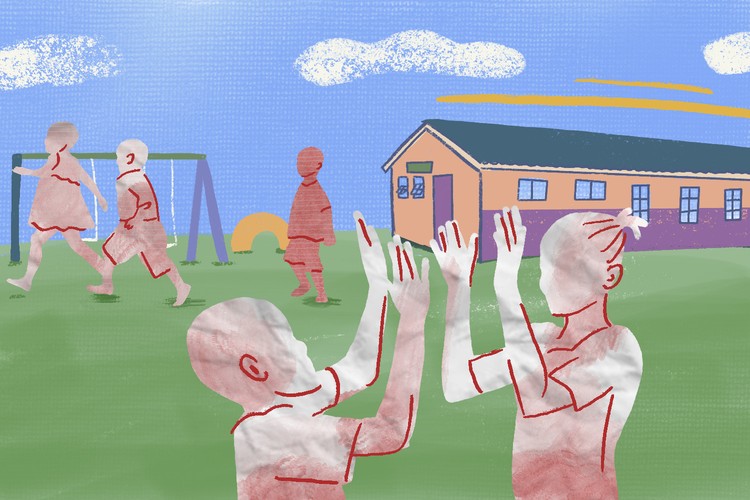
30 June 2025
The Pretoria High Court has dismissed an application by Blind SA to appoint a curator ad litem to investigate serious allegations at Filadelfia Secondary School. Illustration: Lisa Nelson
The Pretoria High Court has dismissed an application by Blind SA to appoint a curator ad litem to investigate allegations that the rights of learners with disabilities are being violated at Filadelfia Secondary School, a special school in Soshanguve.
A curator ad litem is an official appointed by a court to represent the interests of a person who does not have the capacity to represent themselves – in this case the learners of Filadelfia. The school accommodates students who are deaf, visually impaired, blind or have physical disabilities.
Blind SA had approached the High Court in May, arguing that the rights of learners with disabilities were being violated and that despite attempts to engage with the School Governing Body and the Department of Basic Education, no action had been taken.
The allegations about the school included outbreaks of violence between learners and teachers as well as between learners, and allegations of sexual harassment of learners by teachers. The school is also said to lack adequate and quality learning materials, equipment and devices to assist learners, such as braille devices. Other concerns were various shortcomings in the infrastructure and facilities at the school, particularly poor-quality food; inadequate supervision of learners at hostels; and insufficient mattresses and linen.
However, Judge Pieter van Niekerk found it was not appropriate to appoint a curator ad litem to investigate. According to the judge, courts have in the past only appointed a curator ad litem to ensure that the child’s view is considered or taken into account in ongoing court proceedings. But in this case, the curator would conduct an investigation into the allegations at the school, going further than giving the court guidance on ongoing proceedings between Blind SA and the school. The judge said there was no precedent for this.
Judge van Niekerk also found the appointment of a curator problematic, because the parents of the learners had not been joined to the proceedings and therefore had not consented to the appointment. And it was doubtful whether a curator is well equipped to interrogate learners on sensitive matters such as allegations of sexual abuse.
Judge van Niekerk found that Blind SA had alternative remedies. They could review the conduct of the school and have it set aside in terms of the Promotion of Administrative Justice Act. The Act enables members of the public to challenge the decisions of public officials in Court to determine whether they have complied with their legal obligations.
In this case, Blind SA could argue that the school has failed to protect the constitutional rights of learners with disabilities. Alternatively, Blind SA could make an access to information request to the school on what action it has taken to address their grievances.
Judge van Niekerk also noted that Blind SA’s request would have the curator assume responsibilities that belonged solely to the school to perform. The appointment of the curator would unduly interfere with their responsibilities as provided by the law, he said.
According to Anjuli Maistry, a senior attorney at Equal Education Law Centre, Blind SA is seeking leave to appeal the judgment.